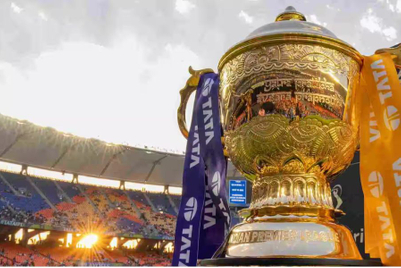
1 It seems crazy to call Google a loser, but its dominance has looked less assured this year. In search, 2009 was about growing competition to the market’s dominant player. Microsoft rolled out Bing to offer a credible search alternative to Google, and after months of talks finally did a 10-year deal with Yahoo to combine the two companies’ search offer. It’s too early to know whether it will work, but it’s the first serious global challenge to Google.
In China, meanwhile, Google has apparently failed to claw back market leader Baidu. Despite the latter’s high-profile reputation issues in late 2008, Google’s share has stayed resolutely around the 30 per cent mark. The launch of a music service early this year so far does not appear to have helped.
Of course, Google has plenty of tricks up its sleeve - not least the launch of its Chrome browser and operating system, designed to hit Microsoft where it hurts. And the growing importance of real-time search (both Bing and Google have deals with Twitter) could stir up the market again. Watch out for an interesting 2010.
2 The shift in Premier League football rights in Singapore and Hong Kong has created both winners and losers. In Singapore, SingTel’s Mio TV platform is set to mount a serious challenge to rival StarHub when the rights transfer next summer. StarHub recently offered to carry the SingTel-branded Premier League coverage in an attempt to stem the flow of subscribers; unsurprisingly, SingTel declined the offer.
In Hong Kong, i-Cable Communications beat incumbent Now TV (part of PCCW) to the Premier League rights for the next three seasons. As in Singapore, a significant number of both subscribers and advertisers are expected to switch services as a result.
3 In China’s ever-changing online industry, there were two clear losers this year. AOL in March announced it was pulling out of the market for the second time, less than a year after it had re-entered as a portal business. Yahoo, meanwhile, remains dependent on partner Alibaba in the market, and the latter appeared to show little confidence in the Yahoo China brand in August when it shifted a classified listings service from the portal to auction site Taobao.com. Reports of a staff walkout soon followed.
Western brands in general have suffered in China this year - many, including Hotmail and Twitter, have been blocked either intermittently or permanently.
The winners, meanwhile, have been local social networks such as Xiaonei (renamed RenRen.com as it moves beyond its campus roots) and Kaixin001, which have built on last year’s growth. Portal and instant messaging giant Tencent has also done well, recently scoring a hit with its version of the Happy Farm online game, which has more than 30 million players.
4 In outdoor the loser was China’s Focus Media. After a testing 2008 the company seemed to have found a white knight in portal giant Sina, which agreed to pay US$1.7 billion for its outdoor operations 12 months ago. However, in September the deal collapsed, leaving the company to find a Plan B.
Elsewhere, outdoor had a positive year. Malaysia’s Media Prima bounced back from the failure of its TV venture in the Philippines with the purchase of Kurnia Outdoor, taking its share of Malaysia’s outdoor market to 42 per cent. And in Singapore MediaCorp launched an out-of-home division and won rights to the high-profile ION Orchard mall .
5 Print proved to be the biggest loser of 2009, as the recession hastened the trend toward online. Having revamped its website in March, the once-mighty Far Eastern Economic Review was finally shuttered in September. And BusinessWeek was put up for sale, with the asking price at one point reported to be just $1. Eventually Bloomberg picked up the title.
Winners were few and far between, but The Economist at least managed to post 4.3 per cent circulation growth in Asia-Pacific for the first half. It also posted sharp growth in India, showing that, for titles that know where to look, there are still opportunities.
Got a view?
Email [email protected]
This article was originally published in 17 December 2009 issue of Media.




.jpg&h=334&w=500&q=100&v=20250320&c=1)
.jpg&h=334&w=500&q=100&v=20250320&c=1)


+(1).jpg&h=334&w=500&q=100&v=20250320&c=1)

.jpg&h=334&w=500&q=100&v=20250320&c=1)








